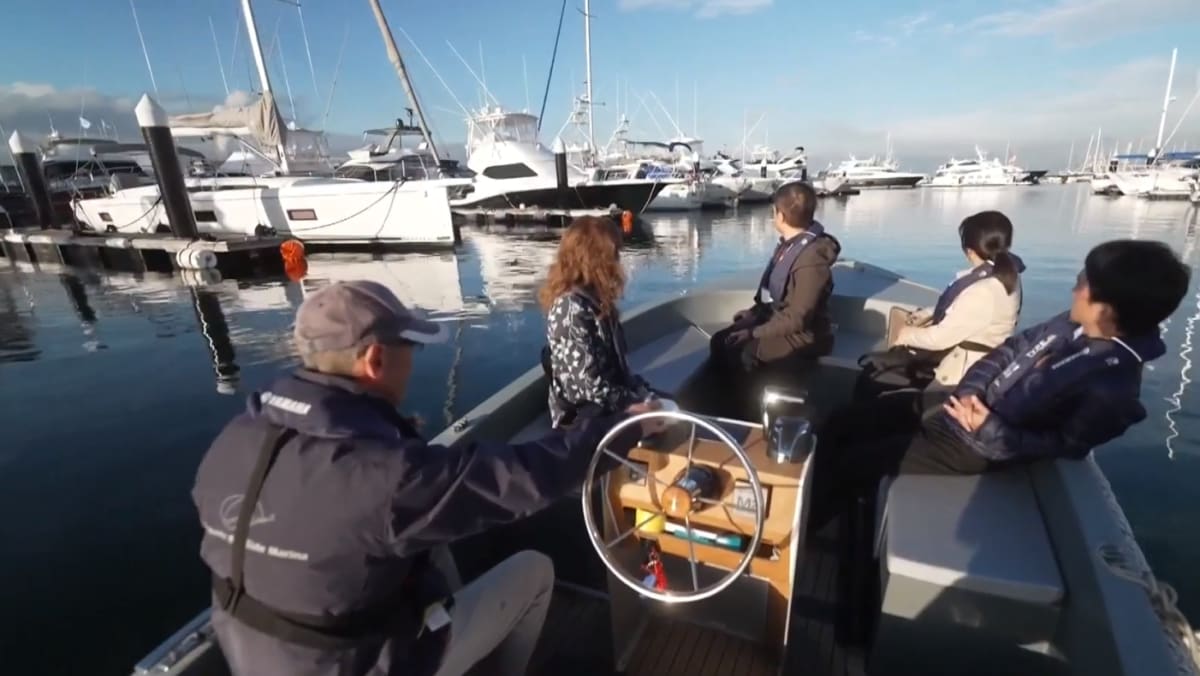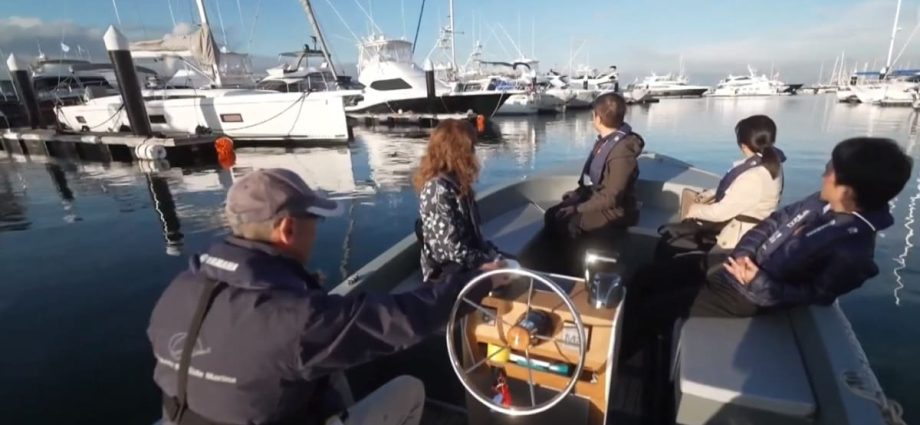
CHALLENGES OF ELECTRIFYING MOTOR BOATS
However, Mr Seiji Saeki, senior managing director at Japan Marine Industry Association, noted that gasoline remains the most practical way of generating power for boats currently.
Nevertheless, Japanese marine engine manufacturers are turning their attention to greening the industry as it continues to expand.
Maritime trade is expected to grow 2.4 per cent in 2023 and more than 2 per cent between 2024 and 2028, according to the UNCTAD report.
Yamaha and Honda are focusing their efforts on developing electric parts while Suzuki is attempting to clean up the environment with its outboard motor that can collect micro plastic waste, said Mr Saeki.
However, challenges remain in electrifying motor boats, which requires a large battery and takes 10 times more energy than electrifying vehicles that travel on land.
These batteries could also take up much space in an already confined area, especially on small boats. Another issue is that electrified boats have yet to be able to sail as fast as their fuel-guzzling counterparts.
Aside from electrification, experiments with other sources of energy are also taking place.
Yamaha Motor’s Mr Ibata said these include hydrogen engines, electro-fuel and hybrid projects that his firm is examining together with automotive maker Toyota for both land and sea use.

